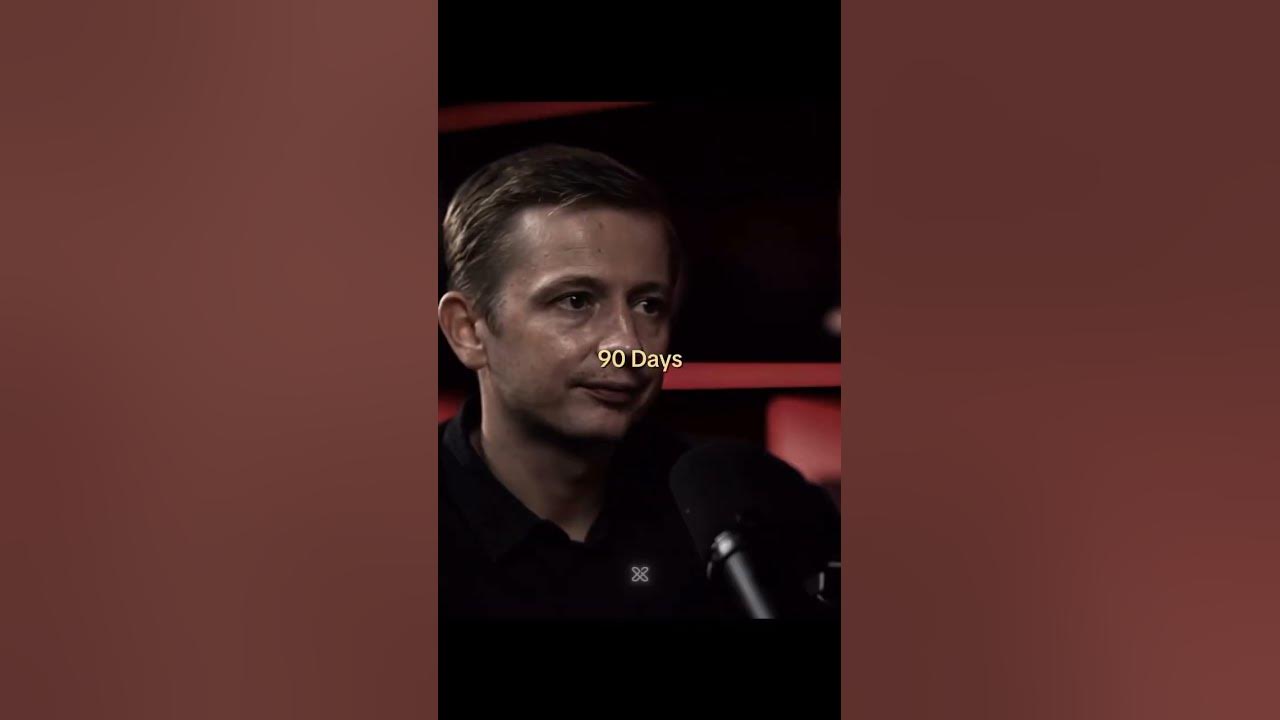How Long It Takes To Change Your Life? | Nwal Hadaki | TEDxSafirSchool
Summary
TLDRThe video script dispels the myth that it takes 21 days to form a new habit or break an old one, citing Dr. Maxwell Maltz's theory and its popularity in self-development circles. Instead, it highlights a study by psychologist Philippe Lally, which suggests that habit formation can take anywhere from 2 to 8 months, averaging 66 days. The script emphasizes the importance of starting today, maintaining consistency, and embracing the process of gradual improvement without the pressure of perfection.
Takeaways
- 🌅 The desire for change often involves starting the day with healthy habits like an early rise, a good breakfast, and exercise.
- 🔄 Change is not easy and requires the incorporation of new habits while eliminating old ones that hinder progress.
- 📅 The common belief is that it takes 21 days to form a new habit or break an old one, but this is a myth.
- 👨⚕️ Dr. Maxwell Maltz, a plastic surgeon, observed that his patients took about 21 days to adjust to changes in their physical appearance.
- 📚 Dr. Maltz's theory gained popularity through his book, contributing to the spread of the '21-day' concept in self-development literature.
- 🤔 The number 21 is appealing because it's short enough to be achievable yet long enough to seem like a significant challenge.
- 🏆 The actual time to form a habit varies greatly and depends on factors such as the complexity of the goal and the consistency of behavior.
- 📊 A study by psychologist Philippe Lally showed that forming a habit takes an average of 66 days, ranging from 18 to 254 days.
- 🛠️ The process of habit formation should include setting reminders, creating a supportive environment, and allowing for imperfection.
- 🔁 It's important to embrace the process and commit to making small, consistent improvements over time.
- 💪 Change is possible with dedication, and any habit can be reshaped with enough commitment and patience.
Q & A
What does the speaker suggest is the common belief about forming new habits?
-The speaker suggests that the common belief is that it takes exactly 21 days for a person to form a new habit or get rid of an old one.
What was Dr. Maxwell Maltz's profession and what pattern did he observe among his patients?
-Dr. Maxwell Maltz was a plastic surgeon in the 1950s, and he observed that his patients took exactly 21 days to get used to seeing their new appearance or to acknowledge the feeling of a missing limb.
What is the main reason the 21-day theory became popular according to the script?
-The 21-day theory became popular because the number 21 is considered a short period of time that is achievable and tempting, and it's long enough to be believable as a challenge.
What is the name of the study that provides a more accurate estimate for habit formation?
-The study is titled 'How our habits form' and was conducted by psychologist Philippe Lally.
How long did the study by Philippe Lally follow participants for?
-The study followed 96 people over a period of 12 weeks.
What was the approximate time frame found in the study for a task to become a habit?
-The study found that it took approximately two to eight months for a task to become a habit, with an average of 66 days.
What factors did the study identify as affecting the speed of habit formation?
-The study identified the complexity of the goal and behavior consistency as factors affecting the speed of habit formation.
What advice does the speaker give regarding the process of habit formation?
-The speaker advises to start with the current day, maintain the new habit, set reminders, create a supportive environment, and understand that making a mistake once or twice does not have lasting effects on behavior.
What is the speaker's view on the importance of time in forming a new habit?
-The speaker believes that the time it takes to form a new habit is less important than the commitment to start and maintain the habit.
What is the speaker's final message to the audience about becoming the best version of oneself?
-The speaker's final message is to commit to the system, embrace the process, and make tiny improvements rather than rushing, as change is not always easy or simple but can be achieved with dedication.
Outlines

This section is available to paid users only. Please upgrade to access this part.
Upgrade NowMindmap

This section is available to paid users only. Please upgrade to access this part.
Upgrade NowKeywords

This section is available to paid users only. Please upgrade to access this part.
Upgrade NowHighlights

This section is available to paid users only. Please upgrade to access this part.
Upgrade NowTranscripts

This section is available to paid users only. Please upgrade to access this part.
Upgrade NowBrowse More Related Video

Develop the Mindset to Achieve Your Goals

your life doesn't change overnight #idigitalpreneurtelugu#motivation#viral#shorts#idigitalpreneur

Three 30-Day Challenges That Will Actually Change Your Finances

Habit Stacking Explained and Simplified #Shorts

Why is it so hard to break a bad habit?

Staying consistent on self improvement
5.0 / 5 (0 votes)